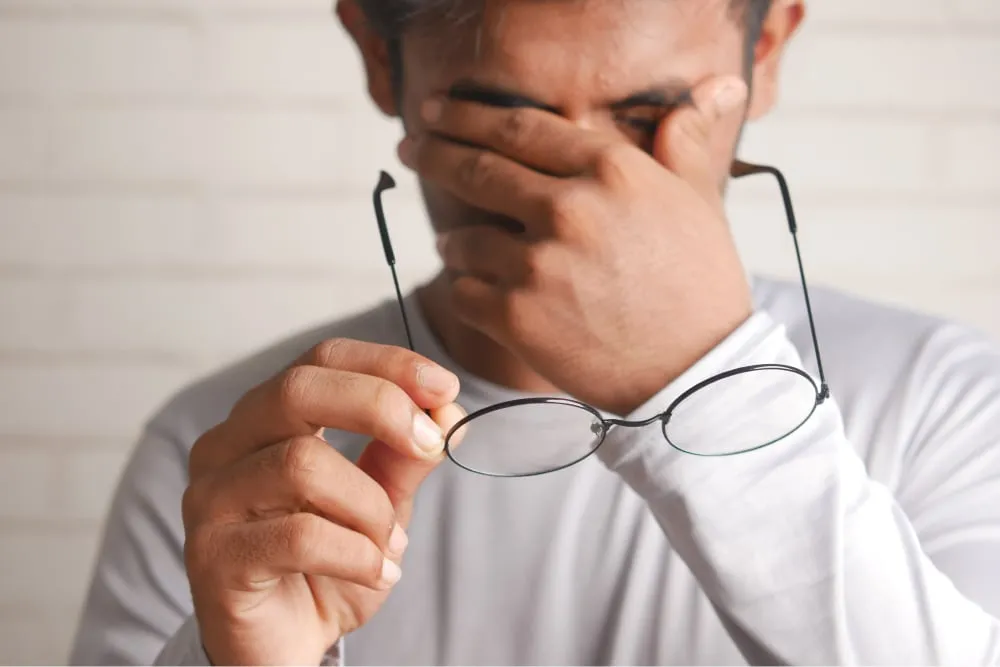What is constipation?
Everyone has different bowel movement patterns, ranging from several times a day to a few times per week, and so long as those patterns remain fairly consistent, they’re generally considered healthy.5
But constipation is technically defined as three or less bowel movements per week.5 If these issues persist for several weeks or longer, it's considered chronic constipation.2
Aside from not having bowel movements at all, constipation can be experienced as:2
- Straining to have bowel movements
- Having lumpy or hard stools
- Feeling unable to empty stool completely from the rectum
- Feeling a blockage that prevents bowel movements
- Requiring assistance to empty the rectum
Constipation is defined as three or less bowel movements per week.
What causes constipation?
When you eat food, it first passes through the stomach, where it is broken down by powerful acids and other digestive juices. As that byproduct moves from the stomach through the intestines, nutrients are absorbed from it and transported into the bloodstream. The partially-digested food then moves into the colon, at the end of the large intestine, where it becomes waste.5
In the colon, water is absorbed out of the waste, preparing it to pass through the body. But when food sits in the colon too long, it’s possible for too much water to get absorbed, making the waste hard, dry, and difficult to pass.5
There are many factors that can cause the digestive system to act this way, including changes to one's lifestyle or routine, diet, and some medical conditions and medications.5
You might be interested in
How does anorexia cause constipation?
Constipation can occur in people who have anorexia nervosa for several reasons.
The eating disorder has been related to a number of motility (movement) issues along the entire digestive system. Intestinal transit extension, or the prolonged journey of food through the intestines, and a decreased motility of the rectum and anus have all been linked to AN.4 These issues can result in food and waste spending more time in the intestines and colon, which often contributes to constipation.
Many patients with anorexia nervosa may misuse laxatives as part of their disorder. This can also bring on constipation, as continued misuse of laxatives can decrease muscle and nerve response in the intestines.8 Laxative misuse can also result in or lead to trapped gas in the intestines, which can not only contribute to constipation, but cause abdominal pain and encourage an unhelpful cycle of misusing laxatives.8
It's important to be treated for anorexia and not just constipation symptoms.
Get help Anorexia and constipation treatment
If you or a loved one are struggling with constipation related to anorexia nervosa, the most important thing you can do is seek out proper treatment for AN. Many GI-related issues subside with eating disorder treatment, once disordered eating patterns are addressed and some balance has been returned to the diet.4
Still, as the body adapts to a new eating routine, it’s possible to continue experiencing constipation and other GI issues into early recovery. In these cases, certain foods and dietary measures may be able to help ease the issue.
Doctors generally recommend eating around 25 grams of fiber daily to support healthy colon function and digestion.6 Drinking plenty of water is also important, to aid against dehydration and constipation.5 And some foods can help the body grow the type of bacteria that creates a healthy gut microbiome.
Foods that can help relieve constipation include:7
- Popcorn
- Dried fruit
- Some nuts
- Leafy greens
- Whole grains
- Apples
- Bananas
- Oatmeal
- Cooked vegetables
- Hot beverages, like tea
While these foods can be helpful, they represent general recommendations. If you’re in recovery from AN, especially if you experienced severe weight loss, it may not be appropriate—and could possibly be dangerous—to add too many foods to your diet right away.
If you're experiencing GI issues in anorexia treatment or while receiving treatment for other eating disorders, you should speak with your dietician or doctor about your concerns, so you can get advice specific to your particular situation.
Finding help for anorexia nervosa
Anorexia nervosa and other eating disorders are serious mental health conditions that can have a large and lasting impact on many aspects of mental, physical, and emotional health. If you or a loved one are struggling with one of these conditions, it's crucial to seek out help.
AN doesn't go away on its own, and it often gets worse with time. But there are many ways to treat anorexia nervosa.
At Within Health, we strive to help people recover from these conditions by offering highly-specialized care from a multidisciplinary team of experts. These professionals can help create a unique treatment plan based on your specific medical history and needs.
If you suspect you or someone you know may have anorexia nervosa, please reach out to us today. It could be the first step toward a healthier and happier future.







































